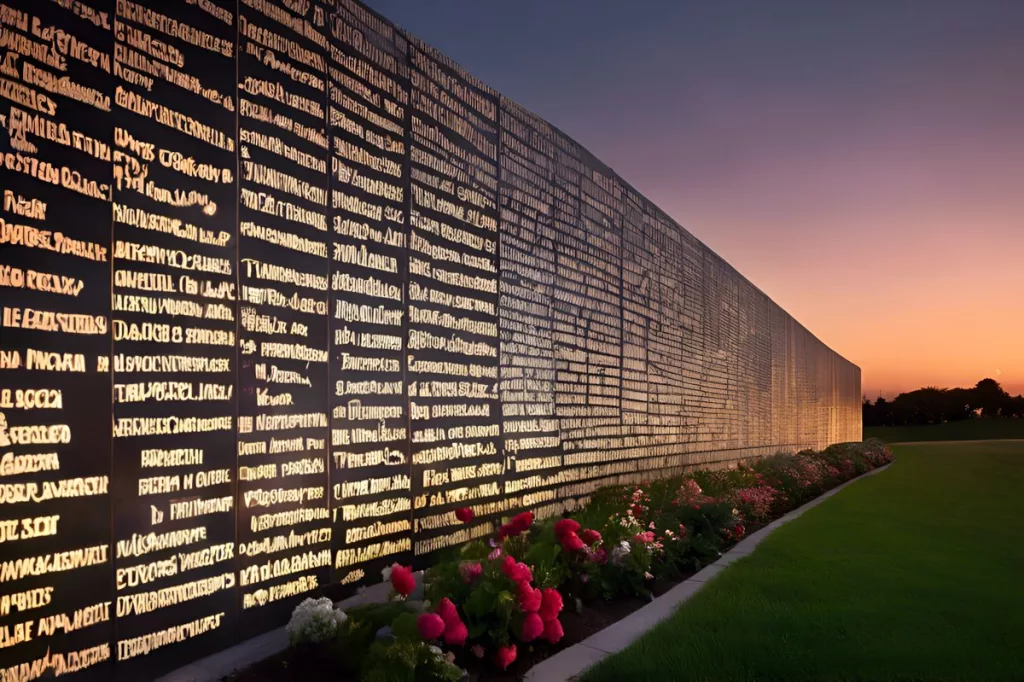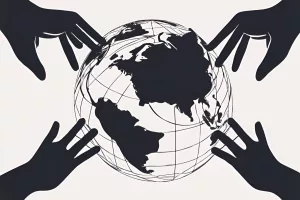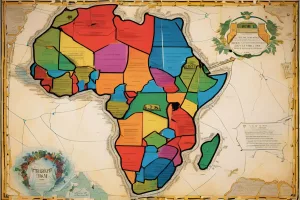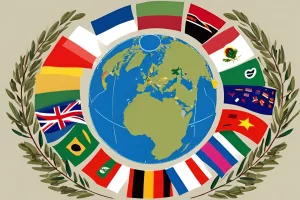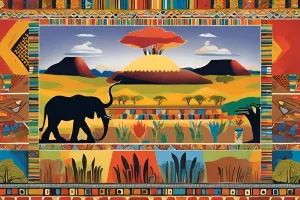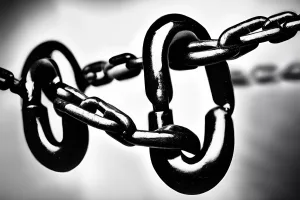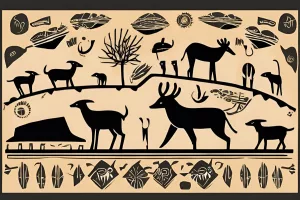The return of South Africa’s freedom fighters is a powerful moment that honors their bravery and sacrifices for justice. At Freedom Park, their remains are welcomed home, celebrating a journey from oppression to freedom. This event not only restores dignity to these heroes but also strengthens bonds among African nations that stood together during the struggle. As their stories inspire future generations, South Africa commits to continuing the fight for equality and unity. The legacy of these courageous individuals reminds us all of the cost of freedom and the importance of standing together for a better world.
Minister Patricia de Lille’s Address at National World Tourism Day: Honoring Three Decades of Connection
On a sunny day in Carnarvon, Minister Patricia de Lille celebrated National World Tourism Day by highlighting the power of tourism to bring people together and promote peace in South Africa. She reflected on the country’s journey to democracy over the past 30 years and praised the booming tourism sector, which welcomed over 8.5 million visitors in 2023. The Minister encouraged everyone to explore the beautiful and oftenoverlooked Northern Cape, showcasing its rich culture and stunning landscapes. With exciting new initiatives like the National AstroTourism Strategy, she called for cooperation to ensure tourism’s growth and its role in building unity and understanding among diverse communities.
The South African banking scene is buzzing with change! HSBC is stepping away, leaving its clients and assets to FirstRand Bank, which is excited to grow its reach in Africa. Meanwhile, Old Mutual is jumping in with OM Bank, set to launch in 2025, bringing fresh ideas to the financial world. This lively shakeup means new chances and challenges for banks, making the future of banking in South Africa look bright and full of possibilities!
On a heartfelt evening, South Africa welcomed back the remains of 49 brave liberation fighters who died far from home, honoring their incredible sacrifices for freedom. Families gathered at Waterkloof Airforce Base, filled with mixed emotions of sorrow and relief, as they finally found closure after many years. Minister Angie Motshekga delivered a moving speech, reminding everyone of the high cost of freedom these heroes paid. This repatriation is not just about returning remains; it’s a powerful step towards healing and remembering the struggle against apartheid. As South Africa moves forward, it promises to cherish and honor the stories of those who fought for a better future.
Deputy Minister Kenny Morolong gave an inspiring speech at the G20 Government Communicators’ Forum, focusing on how important it is to remember our history and communicate well in government. He spoke about South Africa’s commitment to values like Ubuntu, which emphasizes caring for one another, and how the country will fight for African interests on the global stage. Morolong highlighted the need for strong teamwork between nations to tackle big issues like poverty and inequality. He urged government communicators to keep the public informed and involved, showing how G20 decisions can positively impact their lives. His message was clear: together, we can build a better world for everyone.
South Africa and the United States are looking forward to a bright future in business together. South Africa wants to attract $100 billion in investments over the next five years, focusing on exciting areas like green energy. President Cyril Ramaphosa shared this vision at a big meeting in New York, highlighting how important partnerships are for both nations. With strong support for clean energy and a commitment to growth, South Africa is ready to shine on the global stage, inviting US businesses to join in this journey of shared success and prosperity.
In his speech at the 79th UN General Assembly, President Cyril Ramaphosa shared South Africa’s inspiring journey from apartheid to democracy, highlighting the importance of global peace and cooperation. He emphasized the need for fairness in world governance, urging nations to work together against current conflicts, like the situation in Gaza. Ramaphosa also addressed the challenges of climate change and pandemics, calling for united action to help vulnerable countries. He finished with a powerful reminder that building a fair and just world takes commitment and teamwork from all nations.
South Africa’s team of twenty athletes at the Paris Paralympics won a total of five medals, including two golds and three bronzes. Sprinter Mpumelelo Mhlongo set a world record in the T44 long jump class, and Simone Kruger claimed gold in the women’s discus throw F38 class final. Louzanne Coetzee secured a silver medal, and Pieter du Preez earned a bronze medal in the men’s H1 individual time trial. The team’s achievements are a testament to their hard work and resilience and serve as an inspiration to others.
Operation Shanela was a national initiative by the South African Police Service that resulted in the arrest of over 13,000 criminals in just one week, dealing a significant blow to violent crimes such as murder, rape, and illegal firearm ownership, as well as nonviolent offenses like drug possession and illegal liquor sales. The operation demonstrated the police service’s dedication to safeguarding communities from criminal activities, with significant recoveries and confiscations adding to their successes. The mission to maintain law and order continues, ensuring the safety and security of all individuals in South Africa.
Farewell to a Stalwart: South Africa Mourns the Loss of Renowned Writer, James Matthews
James Matthews, a celebrated poet, writer, and antiapartheid activist, passed away, leaving South Africa in deep sorrow. Matthews’ legacy extends beyond literature, emphasizing his unwavering commitment to a racially integrated South Africa. He was an unforgettable figure who used art as a powerful tool against oppression and left behind a legacy that continues to galvanize. Matthews’ contributions to literature and activism were acknowledged by the highest order when he received the Order of Ikhamanga in 2004.
South Africa’s energy sector is waiting anxiously for a crucial briefing by Minister Gwede Mantashe on TotalEnergies’ exit from offshore gas exploration blocks. The briefing will shed light on the inner workings of resource development, the business viability of offshore gas exploration in South Africa, and the legislative decisionmaking mechanism in the country. The meeting’s outcomes will be pivotal in shaping South Africa’s energy scene and influencing future decisions on resource development and economic strategy.
Heritage Day in South Africa is a joyful celebration of the country’s rich and diverse cultures, reminding everyone of the strength found in unity. Acting President Paul Mashatile’s recent speech highlighted the challenges of climate change and the importance of preserving cultural sites, linking the past with the present. He honored the brave heroes who fought for freedom and called for a shared commitment to protect both our cultural identity and natural heritage. Mashatile also emphasized the value of languages and traditions, urging South Africans to celebrate their unique backgrounds while working together for a brighter future. This day is a powerful reminder of the beauty of South African heritage and the ongoing journey towards equality and respect for all.
The effects of apartheid on South Africa’s social climate are still present today as demonstrated by a recent TikTok video showing racial bias. Despite progress towards racial harmony, educational efforts, awareness campaigns, and open dialogue are needed to uproot prejudice and discrimination. Each citizen has a responsibility to promote tolerance and unity towards a future where equality and respect for all is a living reality. South Africa’s journey towards a society free from prejudice, discrimination, and racism may be challenging, but with resilience and determination, it can be achieved.
Eskom is bringing a bright change to South Africa’s energy scene by improving how it manages power and reduces blackouts. With better maintenance and teamwork, the utility has gone almost 200 days without rolling blackouts, giving hope for a steadier power supply until March 2025. Eskom’s focus on efficient operations has cut costs significantly, especially in diesel use, making energy production more affordable and sustainable. As they continue to innovate and strengthen their practices, Eskom is paving the way for a more reliable future in energy for all South Africans.
South Africa’s prehistoric rock art offers a window into the past and showcases the rich legacy of indigenous cultures. The Cederberg Bushmans Kloof and Drakensberg regions provide immersive experiences through guided tours and workshops, with some artwork dating back over 10,000 years. The quaint village of Rhodes and Limpopo’s unique confluence of artistic traditions also offer fascinating insights into the region’s cultural history. South Africa’s rock art connects us to our collective human story, providing a living link to the past that we can actively participate in.
Get ready for the Three Sphere Planning Session, a pivotal gathering of South Africa’s National Council of Provinces (NCOP) scheduled from Tuesday, 27 August to Thursday, 29 August 2024. The session aims to address political and bureaucratic interplay, foster consistency in planning and implementation across the three spheres of governance, and enhance intergovernmental relations. Ministers, Heads of Chapter Nine Institutions Supporting Democracy, and distinguished academia will attend, and media professionals and the public can follow the proceedings live online. This platform signifies a commitment to fostering a more transparent, accountable, and effective governance system for the people of South Africa.

